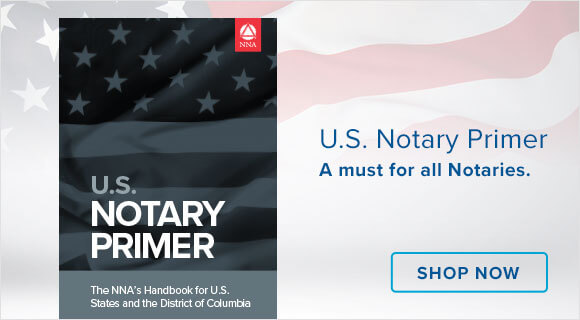
Updated 8-26-24. A Notary is not a lawyer. In fact, it is against the law for Notaries who aren't attorneys to provide certain kinds of advice and services. This is known as Unauthorized Practice of Law (UPL) and can carry serious consequences, including hefty fines, loss of commission or even a criminal conviction. It’s crucial to know what services fall under the unauthorized practice of law — and how to avoid them.
What is the unauthorized practice of law?
The unauthorized practice of law means offering legal services without being licensed as an attorney. Statutes, court opinions and ethics rulings from the state bar often define legal services in the following ways:
- Giving advice about a document a customer needs.
- Recommending the type of notarization required.
- Offering an opinion about the legality or effect of a document.
Only attorneys licensed by the bar in a particular state may perform these services, nonattorney Notaries may not.
Avoiding unauthorized practice of law
To help you avoid UPL, The Notary Public Code of Professional Responsibility provides the following list of services Notaries are NOT allowed to offer customers:
- Notaries may not choose the particular document a customer may need for a transaction.
- Notaries may not choose the type of notarization or certificate wording for a given document. The customer must decide.
- Notaries may not prepare documents or give advice on how to fill out, draft, or complete them.
- Notaries may not provide legal advice or answer questions about a legal matter.
No person may represent someone in court or a legal proceeding or charge and collect a fee for such representation unless they are licensed to practice law in that state.
How Notaries may advertise Notary services
One of the more publicized examples of UPL involves bad actors who advertise as Notarios Publicos, pretending to be qualified immigration law professionals when they actually aren’t. They do this to scam unsuspecting immigrants into paying large fees for bogus services.
Notaries in many other countries, including Latin American nations, have legal training and credentials similar to attorneys in the U.S. They may draft and archive documents, advise parties to the legal effect of a transaction, serve as mediators or arbitrators and issue judicial opinions.
In order to combat so-called “notario” scams, Notaries in most states are prohibited from using the misleading phrase “Notario Publico” in their ads. Furthermore, many states require Notaries to post a written notice explaining they are not attorneys licensed to practice law, cannot offer legal advice or accept fees for legal services.
For example, Texas Notaries who are not attorneys are required by law to include the following disclaimer when advertising in a foreign language: “I am not an attorney licensed to practice law in Texas and may not give legal advice or accept fees for legal advice.” The disclaimer must be included in the foreign language and also in English.
California and Florida require Notaries who advertise in other languages to post a disclaimer in English and any other language the Notary advertises in stating the Notary is not an attorney and cannot give legal advice. California also prohibits immigration consultants who are also commissioned Notaries from advertising Notary services in any marketing materials.
Consult your state Notary laws to see if you must include a specific disclaimer in your advertising.
How Notaries can assist signers without offering legal advice
While you must never offer legal advice or services, here are some ways you can assist signers without engaging in the unauthorized practice of law:
- Set appropriate expectations with signers by explaining what you can and cannot do as a Notary.
- While you may describe to signers the types of notarial acts and certificates — such as the difference between acknowledgments and jurats — the signer must always choose which act you will perform for them. Don't choose for the signer.
- If signers have questions, refer them to the document's receiving agency or an attorney so they can receive proper instructions or advice.
Rules For Nonattorney Notaries Who Work With Immigrant Clients
- Never use the words "notario" or "notario publico" in your advertisements, or on your business cards, website, social media postings or storefront.
- When required by law, include a disclaimer in both English and the foreign language in which you are advertising, explaining exactly what you are and are not authorized to do.
- Include your specific fees in your advertisements in English and the foreign language.
- Know what type of immigration assistance services you are allowed to provide.


Related Articles:
A Notary’s guide to California’s rules for immigration consultants
Quiz: The unauthorized practice of law
Additional Resources:
State Rules On Immigration Consulting And Assistance Services